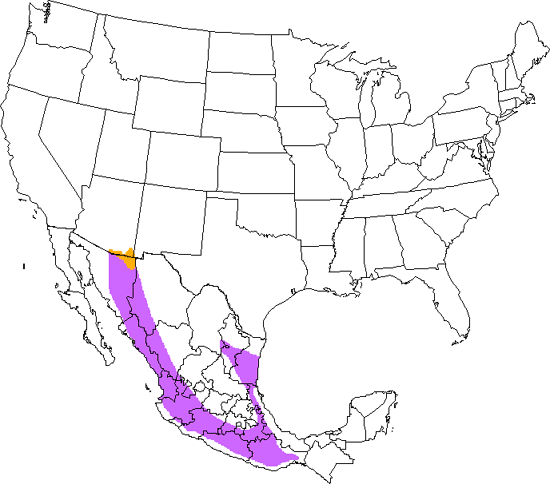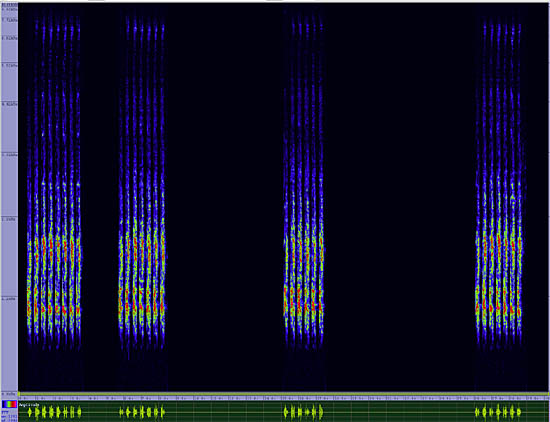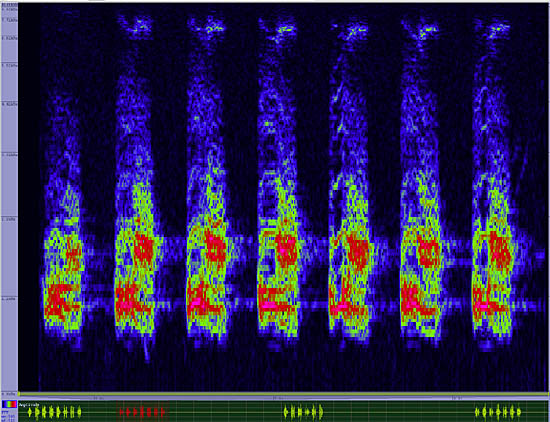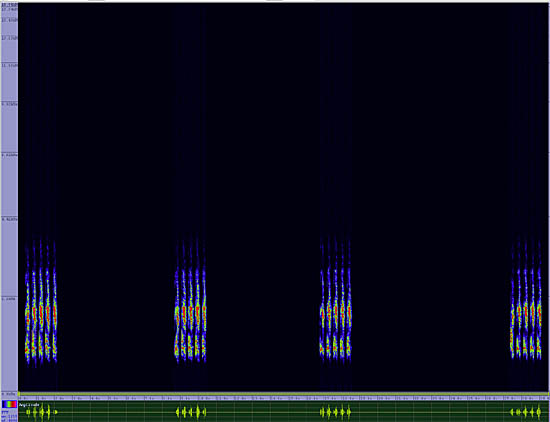Elegant Trogon
Trogon elegans

Perching
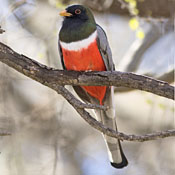
Length: 13 in. (32 cm )
Only one of these exotic and beautiful tropical species regularly enters into the United States from Mexico during the summer. Both sexes of the Elegant Trogon spend considerable time sitting quietly on an oak, juniper or pine branch, and despite their garish appearance, they can easily be overlooked. Luckily their ringing calls carry long distances, and then they become much more obvious. The females are less colorful and only a bit less noisy but no less interesting. Elegant Trogons eat both fruits and insects that they grab by flying up to the vegetation and snatching off small branches and leaves as they hover for a few seconds. The nest is a tree hole cavity, usually in a sycamore along forested mountain canyon streams. A few individuals winter in Arizona, usually at lower elevations in thick riparian forest.
The four-digit banding code is ELTR.
Bibliographic details:
- Article: Elegant Trogon
- Author(s): Dr. Biology
- Publisher: Arizona State University School of Life Sciences Ask A Biologist
- Site name: ASU - Ask A Biologist
- Date published: 13 Jul, 2017
- Date accessed: 8 June, 2025
- Link: https://askabiologist.asu.edu/activities/bird/elegant-trogon
APA Style
Dr. Biology. (Thu, 07/13/2017 - 15:36). Elegant Trogon. ASU - Ask A Biologist. Retrieved from https://askabiologist.asu.edu/activities/bird/elegant-trogon
Chicago Manual of Style
Dr. Biology. "Elegant Trogon". ASU - Ask A Biologist. 13 Jul 2017. https://askabiologist.asu.edu/activities/bird/elegant-trogon
MLA 2017 Style
Dr. Biology. "Elegant Trogon". ASU - Ask A Biologist. 13 Jul 2017. ASU - Ask A Biologist, Web. https://askabiologist.asu.edu/activities/bird/elegant-trogon
Be Part of
Ask A Biologist
By volunteering, or simply sending us feedback on the site. Scientists, teachers, writers, illustrators, and translators are all important to the program. If you are interested in helping with the website we have a Volunteers page to get the process started.



